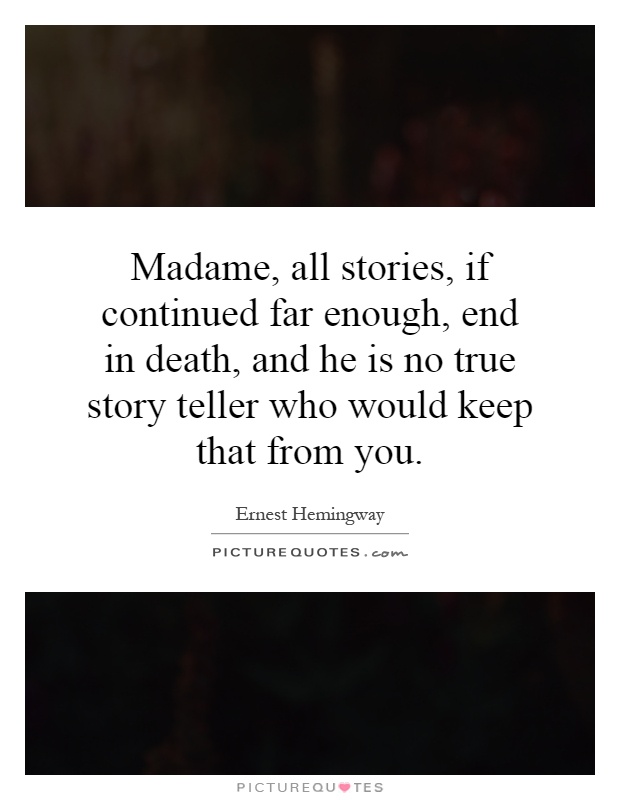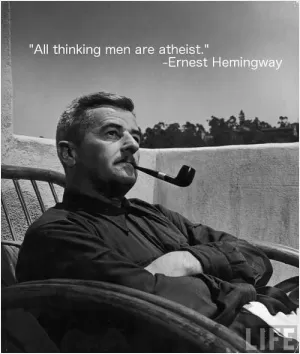Madame, all stories, if continued far enough, end in death, and he is no true story teller who would keep that from you

Madame, all stories, if continued far enough, end in death, and he is no true story teller who would keep that from you
Ernest Hemingway, known for his concise and powerful writing style, often explored themes of life, death, and the human experience in his works. One of his most famous quotes, “Madame, all stories, if continued far enough, end in death, and he is no true story teller who would keep that from you,” encapsulates his belief in the inevitability of death and the importance of facing it head-on in storytelling.Hemingway’s own life was marked by tragedy and loss, which undoubtedly influenced his perspective on mortality. He experienced the horrors of war firsthand as an ambulance driver in World War I and later as a war correspondent during the Spanish Civil War. These experiences, along with personal struggles and failed relationships, shaped his writing and imbued it with a sense of realism and authenticity.
In many of his works, such as “A Farewell to Arms” and “For Whom the Bell Tolls,” death is a central theme that looms over the characters and drives the narrative forward. Hemingway’s characters often confront mortality in a stoic and matter-of-fact manner, reflecting his own belief in the inevitability of death as an integral part of the human experience.
Hemingway’s quote can be seen as a reflection of his philosophy on storytelling. He believed that a true storyteller must confront the harsh realities of life, including death, and not shy away from them. By acknowledging the finality of death, Hemingway argued, a storyteller can create a more honest and impactful narrative that resonates with readers on a deeper level.












 Friendship Quotes
Friendship Quotes Love Quotes
Love Quotes Life Quotes
Life Quotes Funny Quotes
Funny Quotes Motivational Quotes
Motivational Quotes Inspirational Quotes
Inspirational Quotes